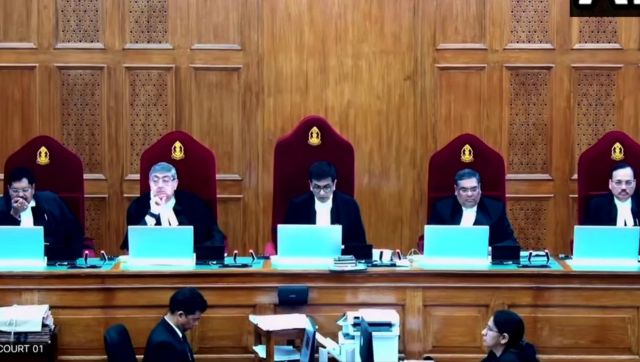The Supreme Court Monday has directed the Election Commission of India to conduct elections to the Jammu and Kashmir Assembly by 30 September, 2024. “We direct that steps shall be taken by the Election Commission of India to conduct elections to the Jammu and Kashmir Assembly by September 30,” Chief Justice of India (CJI) DY Chandrachud said while pronouncing its judgment in the Article 370 case. The last Assembly election in Jammu and Kashmir was held in 2014, and the last elected administration fell in June 2018. After almost a year of President’s Rule, the Jammu and Kashmir Reorganisation Act, 2019 divided the State into two Union Territories - Ladakh from Jammu and Kashmir. The direction by the apex court for holding elections was part of the verdict on pleas challenging the scrapping of the special status of Jammu and Kashmir. A five-judge Bench headed by CJI Chandrachud, on Monday (11 December, 2023) also upheld the constitutional validity of Constitutional Order which abrogated Article 370 and said steps should be taken to restore the statehood of Jammu and Kashmir “as soon as possible”. “Restoration of statehood shall take place as soon as possible,” the CJI added. Also Read: Supreme Court upholds abrogation of Article 370 in J&K Article 370 bestowed special status on the erstwhile state of Jammu and Kashmir. Writing the judgement for himself and Justices Gavai and Surya Kant, CJI Chandrachud said Article 370 of the Constitution was a temporary provision and the President has the power to revoke it. The court also upheld the validity of the decision to carve out the union territory of Ladakh from Jammu and Kashmir on 5 August, 2019. The CJI said the erstwhile state of Jammu and Kashmir does not have internal sovereignty different from other states of the country. Don’t Miss: 10 reasons CJI Chandrachud gave for holding order scrapping Article 370 'valid' “… all provisions of the Indian Constitution can be applied to J-K,” the CJI said. The Constitution bench headed by CJI Chandrachud and comprising of Justices Gavai, Surya Kant, Sanjay Kishan Kaul, Sanjiv Khanna, assembled around 11 to pronounce the three separate and concurring judgements Justices Kaul and Khanna wrote their judgments separately. On 5 September this year, the Supreme Court reserved its verdict in the matter after a 16-day marathon hearing on a batch of petitions challenging the abrogation of the provisions of Article 370. With inputs from agencies
Chief Justice of India (CJI) DY Chandrachud said, ‘Restoration of statehood shall take place as soon as possible’
Advertisement
End of Article
Written by Umang Sharma
Umang Sharma is a media professional with over 12 years of experience. Crafting compelling content and using storytelling techniques are his strengths. His interest lies in national, global, political news and events. see more


)

)
)
)
)
)
)
)
)



